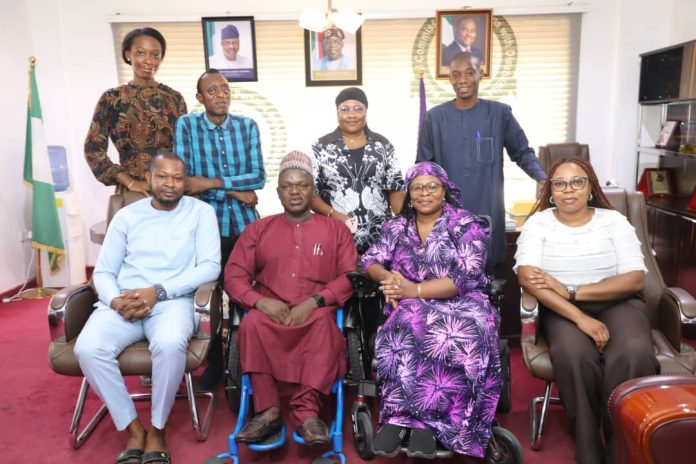In a decisive move to uphold the rights of over 35 million Nigerians with disabilities, the National Commission for Persons with Disabilities (NCPWD) has pledged stringent enforcement of accessibility laws. This commitment was underscored during a recent meeting with the Inclusive Friends Association (IFA), where both organizations vowed to tackle non-compliance head-on.
NCPWD’s Firm Stance on Accessibility
Executive Secretary of NCPWD, Hon. Ayuba Gufwan, emphasized that accessibility is a fundamental right enshrined in the Discrimination Against Persons with Disabilities (Prohibition) Act, 2018. He declared that institutions failing to comply with accessibility standards would face legal repercussions.
“Public buildings must be inclusive for all,” Gufwan asserted. “Those that fail to meet accessibility standards will face legal consequences. The era of impunity is over. Under my leadership, the NCPWD will aggressively pursue the full enforcement of accessibility laws to ensure that persons with disabilities can fully participate in society without physical barriers.”
Despite the legal mandate, enforcement has been a significant challenge. However, Gufwan assured that the Commission, in collaboration with stakeholders, would implement robust mechanisms to address non-compliance.
IFA’s Advocacy for Digital Monitoring
The Inclusive Friends Association (IFA) introduced its Accessibility Monitoring Website, a digital tool designed to assess and report compliance with accessibility standards in public buildings, including government offices, educational institutions, healthcare facilities, and commercial establishments.
Grace Jerry, Executive Director of IFA, highlighted the urgency of stronger enforcement measures, noting that many public structures remain inaccessible despite existing legal provisions. She emphasized the need for collaboration with NCPWD to:
- Strengthen enforcement mechanisms to ensure full compliance with accessibility laws.
- Utilize the Accessibility Monitoring Website to track and report violations in real-time.
- Engage policymakers, architects, and construction firms to promote inclusive building designs.
- Advocate for strict penalties against non-compliant institutions.
Strategic Actions Ahead
In response, Hon. Gufwan outlined the Commission’s next steps, which include:
- Reviewing the Accessibility Monitoring Website to integrate its findings into official enforcement actions.
- Engaging relevant government agencies to ensure strict adherence to accessibility requirements.
- Intensifying advocacy and sensitization efforts to promote compliance among public and private institutions.
- Considering legal action against buildings that remain inaccessible despite legal provisions.
This collaboration between NCPWD and IFA signifies a strengthened partnership aimed at transforming public spaces across Nigeria to become fully accessible for persons with disabilities. The Commission remains resolute in its mission to uphold the rights of persons with disabilities and will continue to work closely with relevant stakeholders to enforce accessibility standards nationwide.


